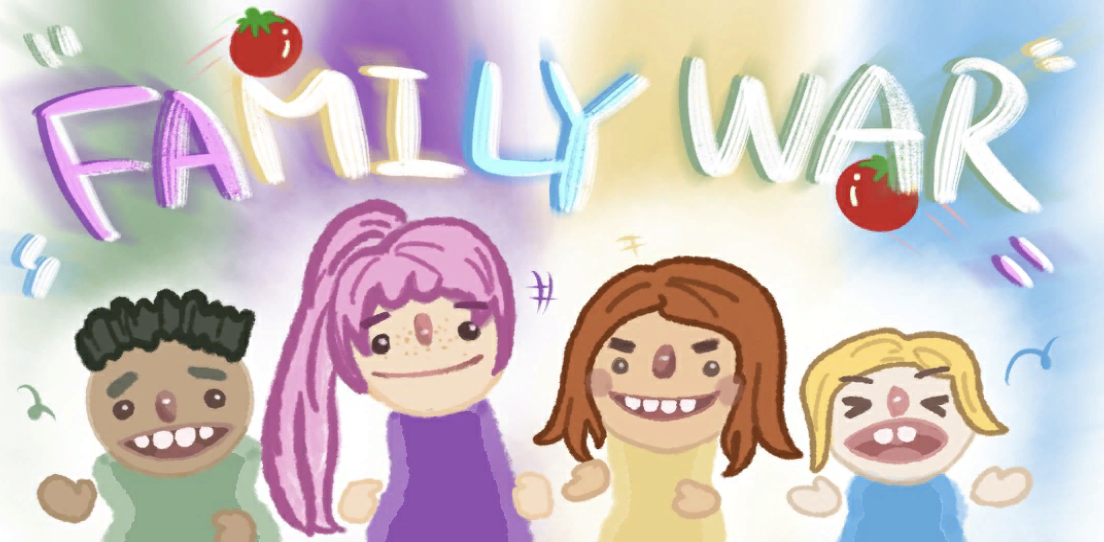Postmortem
Family War » Devlog
- What went right:
- Alternative solution: We were struggling with getting the code right for the player control and our solution was to change the entire mechanic from everyone picking up things and throwing to having two separate interactions: one team shooting bullets and the other picking up and dropping off items. I think this is successful because we took a failing idea and made it into something different that can work.
- Art style and vibe: the overall style of the game is quite goofy and fun. While Jasmine drew the 2D screens I (My) was working on the 3D models. I was glad that even though we have different styles we were still able to convey the ideas and art in a cohesive way.
- Constant communication: In the beginning, we took a long time to agree on an idea to execute our game. However, once we got our idea working we constantly updated each other on the state of the game and worked together as a team to get tasks done and solve problems.
- -Setbacks (What went wrong in development):
- A lot of time was spent on code in the beginning. Caleb lead the beginning programming and ran into many errors during this time. He quickly realized that programming was not there strongest suite, as the programming itself was iterative based. For example originally the game was based on the mouse trackpad for object rotation. This would be impossible in a multiplayer context and had to be converted. I feel that with a smarter initial programming cycle this project would have gone a lot smoother. This got to the point where we changed the rules of the game to accommodate the imperfect programming.
- In the beginning a lot of time was spent figuring out the type of game we wanted to make. We used a big chart to come up with, and eliminate options. While this time was well spent, it forced us to spend more time deciding what we wanted to achieve, rather then working to achieve it.
- Throughout development we ran into consistent errors with the Cinemachine camera. Often times rotating a incorrect axis, or zoomed so far out its deemed unhelpful. While this issue was fixed with fine tuning, This problem however consisted through the developmental process.
- Lessons Learned (How did you overcome or work around your setbacks):
- One of the main solutions to fixing camera issues was through research. Cinemachine is a software that needs to be learned, and we definitely learned more about it throughout our time developing with it. Research was always a primary method to overcome an error. Whether it was early development, or the Cinemachine. Researching a solution was a skill we learned more of during the development. We also learned how to scope our project more. Half way through development we looked back and realized that a different (arguably more interesting) game could be made. We learned to use bugs and limitations, and allowed it to influence our design to make an arguably better product.
- Next steps: We will continue gaining experience working in teams as we go on with the next projects. Even though our project did not go the way we expected it to go initially, we are still learning in the process. If we have everything figured out and the whole thing be perfect, there is no room for improvement, and I’m glad we’re learning new things every time a project ends. Working in a team is hard because I cannot control what everyone else does, but if we can learn to cooperate well we will be unstoppable.
Get Family War
Download NowName your own price
Family War
Wanna fight with ur siblings? Here's the perfect chance!
| Status | Released |
| Authors | jasmine0204, calebstudios, meemeemy's game design portfolio |
| Genre | Fighting |
More posts
- DevelopmentOct 24, 2021
